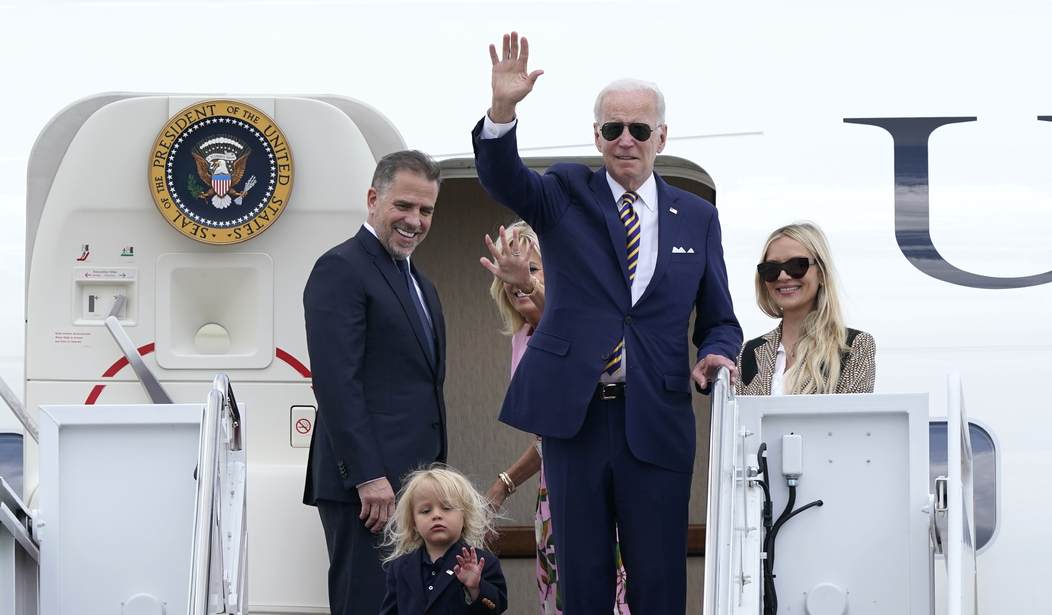Just in time for the upcoming November midterm elections, it appears as if the Biden administration is all the more likely to extend the COVID public health emergency for another three months, according to Axios' Adriel Bettelheim.
The emergency in question is set to expire on October 13, should the president not move to extend it. As Bettleheim mentioned, "HHS had extended the emergency declaration through Oct. 13 and pledged it would give states and health providers 60 days' notice before it ends."
Bettleheim's report comes after a POLITICO report earlier this month from Adam Cancryn and David Lim also indicated as much. That the emergency will be extended seems even more likely, given that the August 15 deadline for deciding whether the deadline to continue, which is referenced in the report, has come and gone.
As it turns out, this may be another issue in which Democrats are in disarray, including those in the Biden administration.
From Cancryn and Lim's report:
The planned renewal follows extensive deliberations among Biden officials over the future of the emergency declaration, including some who questioned whether it was time to let the designation lapse.
Under the proposed extension, the Department of Health and Human Services would continue the declaration beyond the November elections and potentially into early 2023 — pushing the U.S. into its fourth calendar year under a Covid public health emergency.
...
The Biden administration has increasingly pointed to the availability of Covid vaccines and treatments as evidence that Americans who are vaccinated and boosted can live with the virus in relative safety. But even with that new posture, many administration health officials remain wary of the message that ending the public health emergency declaration would send at a time when caseloads are topping 100,000 a day.
“It will end whenever the emergency ends,” one senior administration official said, summing up the internal attitude toward the declaration.
Recommended
For a "senior administration official" to be quoted saying the declaration "will end whenever the emergency ends" is chilling at best. There's been jokes about a midterm variant popping up, as our friends at Twitchy highlighted when it comes to both the POLITICO and Axios reports were published and had gained traction online. Such a deadline, though, which isn't a deadline at all, opens the administration up to continue extending it for as long as it wishes.
As the excerpt above mentions, for the emergency to be extended into next year would make it the fourth calendar year that Americans have been forced to live under it.
Even more concerning is that the administration won't give out specifics:
The federal government has continuously renewed the declaration since the first Covid cases hit the U.S. in January 2020. And while HHS has pledged to give states 60 days’ notice before allowing it to expire, the administration has refused to set out specific criteria for phasing out its emergency authorities.
The debate around continuing the declaration, however, has grown more contentious. With vaccines and treatments widely distributed and no remaining expectation the administration can eradicate Covid, health officials over the last several months have increasingly discussed when that phase-out should occur, and what it should look like.
The report also provides a glimpse as to why officials may want to extend the emergency, vaccines and funding. Emphasis is added:
In the most recent round of deliberations, some officials have floated allowing the declaration to expire in October, contingent on the administration successfully rolling out its next round of vaccines and averting a fall surge in cases, two people familiar with the matter said. An end of the emergency declaration this year could also provide a pre-election demonstration that the country has, indeed, entered a new phase of the pandemic fight.
But such a move would likely spark fierce pushback from the health industry and invite criticism from public health groups on the front lines of efforts to combat the virus and vaccinate more Americans.
Some health officials also feared that formally ending the public health emergency would dampen any remaining sense of urgency in Congress to allocate additional money toward the Covid response. The administration’s request for billions more dollars to bolster its stockpiles of vaccines, tests and treatments has stalled for months in the Senate, even as officials warn the funding shortage risks hampering their ability to continue the pandemic fight.
It's worth reminding that the Biden administration has been relentless in demanding more money from Congress. Further, when it comes to vaccines, those who have yet to be vaccinated are not almost certainly not going to be convinced to get the vaccine.
First Lady Jill Biden tested positive for the virus on Tuesday. Defense Secretary Lloyd Austin also tested positive, again. This is despite how both have been double vaccinated and double boosted.
Further, when it comes to Americans' concerns with COVID ahead of the midterms, FiveThirtyEight has consistently ranked it towards the bottom when it comes to issues of concern.
























Join the conversation as a VIP Member